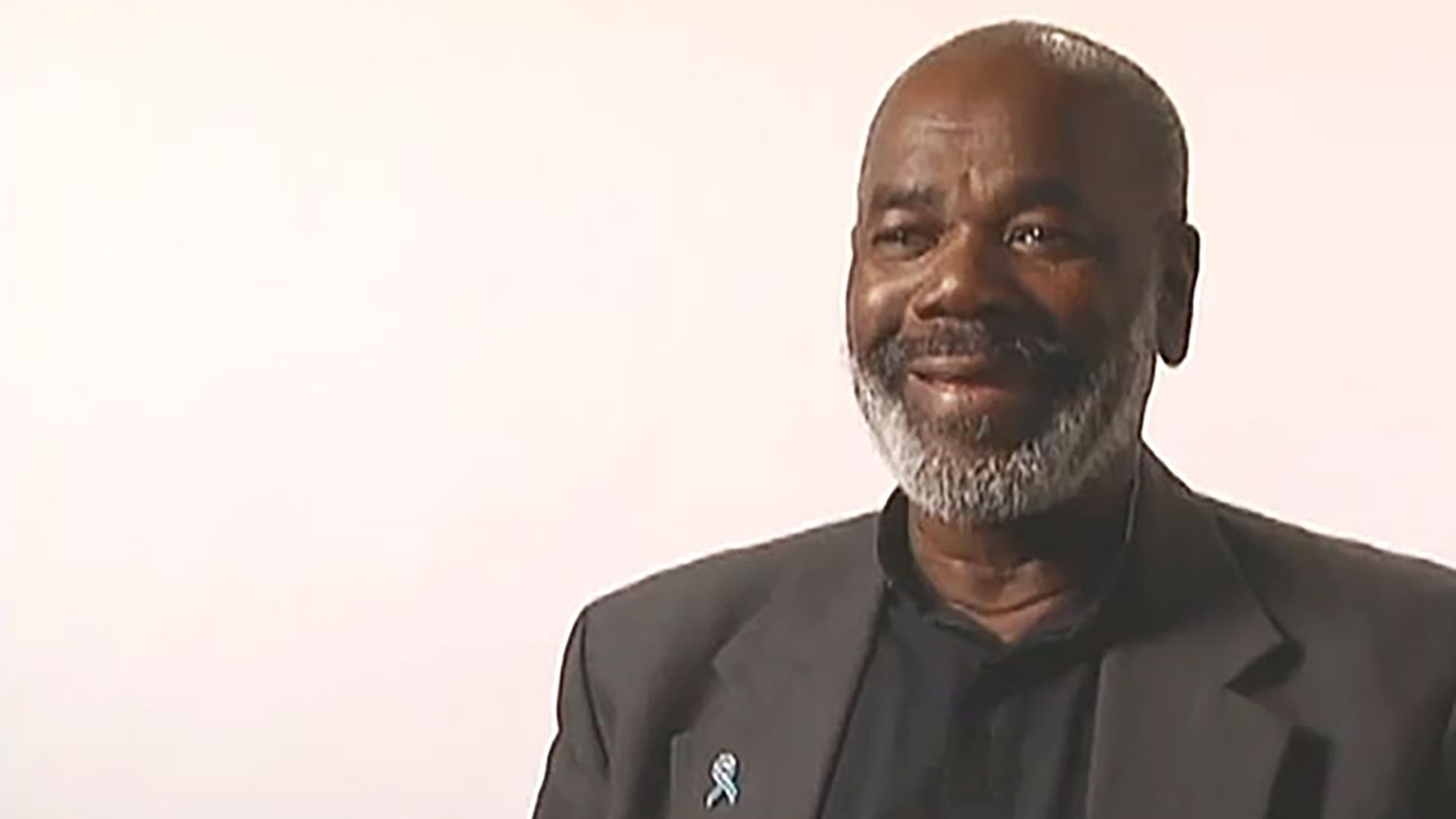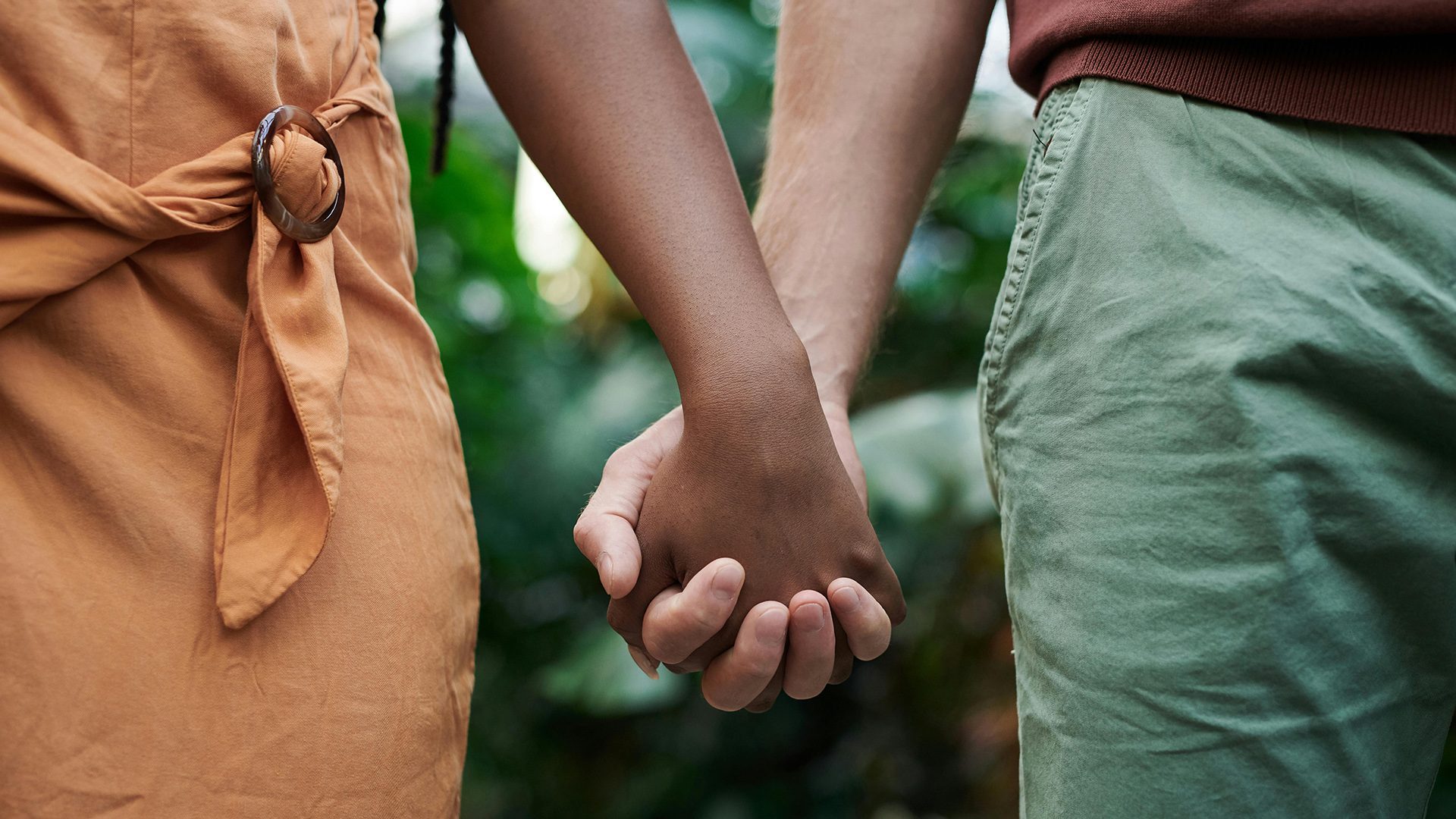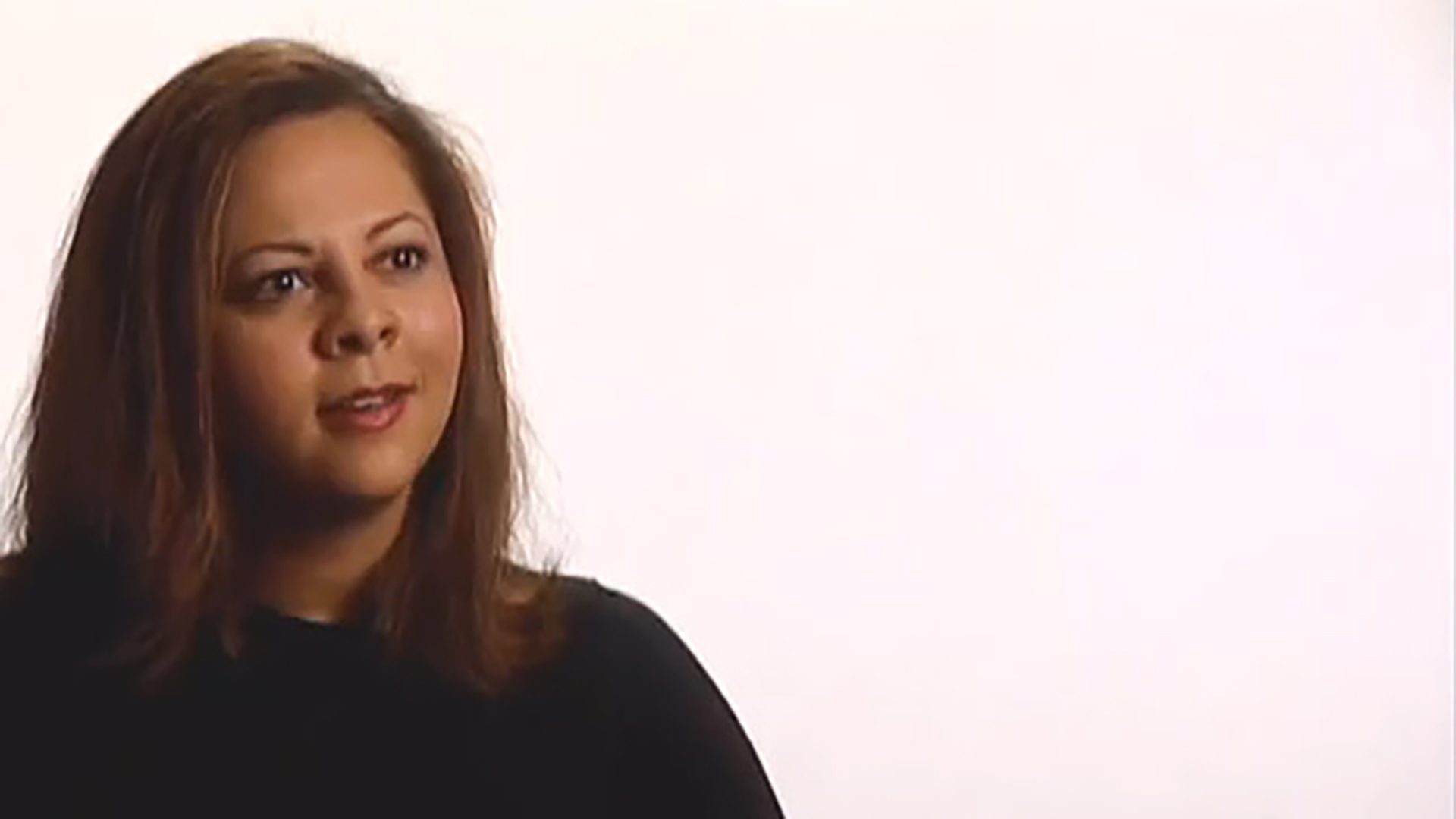Survivor Interview – Jim W.
Jim is a prostate cancer survivor. He talks about sexual dysfunction, involvement in the cancer community, and managing urinary incontinence.

I became a survivor of prostate cancer on August 21, 1995.
I was treated for my cancer on October 21, 1995. Since then, I have gone on to talking to my community and the community at large about my experience with prostate cancer. One of the reasons I do that is to take my own mind off what is happening to me, and to bring comfort to those who are newly diagnosed or those who have had treatment and are having difficulty living with the process.
At the time of diagnosis, generally, one thinks it’s a death sentence. When that occurs, you take a step back. You literally fall apart. After that, you’ve got to pick yourself up and listen to what you’re being told. Then you and your family members are the ones who are going to make the decision as to what modality of treatments to have. The doctor doesn’t make it for you. No one else does. But it is not the end of the road.
Unfortunately, I did not have a support group. I was single. I was private. I have a very low pain threshold. All these things put together meant that I went through this period on my own. Having to determine without any consultation as to what mode of treatment I was going to have, I chose a prostatectomy. It was in, it was out, it was simple. I had no way of determining whether it was the best, second best, or worst. It was simply based on my fear.
I wish, at the time that I was diagnosed, I had someone to guide me through the maze of additional treatment, other than simply radical prostatectomy. Looking back, now that I can share this information with others and ask them to take a serious look, I wish I had the same opportunity. I might have chosen something else, but I live with my decision. No regrets.
I was discharged from the hospital on a Sunday evening after five days — no medication, no advice, nothing. I was going home alone, to an empty house, not knowing what to expect. Here you are for a week with somebody caring for your every need, and when they say goodbye, you’re going home, you get there and you realize your limitations. I had no caregiver. At the time, I hadn’t got many friends. I had a church family, but I did not call upon them. So it was somewhat of my own making, but the very thought that I was going to be on my own was extremely difficult.
The following three months I went into deep depression. I somehow pulled myself through and made the determination, there and then, to go and speak about it. I went out and spoke to the first couple of guys about it, realized it wasn’t difficult, and here I am today. I have been speaking for five years. Speaking to small groups. Speaking to individuals. My home number is public. Anyone from across the country who gets hold of it and want to know anything about prostate cancer, I am willing to talk to them about it.
Prostate cancer still has a stigma. There is nothing sexy or romantic about it. I like to put newly diagnosed survivors at a comfort level. I would start by saying something like, “Consider me a guest in your home and we’re going to have a conversation.” The reason I do that is to take the fear out of it. Guests don’t generally bring fear into your home.
About a month ago, one of the people who I had counseled came up and said, “I’ve been wanting to say something to you for a very long time.” He said, “I know what you have given us over the last five years, but I’m concerned as to what you’re giving yourself. Take time away, take time out, and really think of what’s going on in your own life.” It was one of those times that I realized that others do care, and it was an extremely good feeling.
I realize that I cannot continue to put it on the back burner. I know what’s going on in my body. There are still some cancer cells in there. How do I know? My PSA’s still rising slowly. I’ve decided that, until I really have a need, I will not take any additional treatments. The follow-up treatment changes your body and sometimes it’s very hard. It’s a personal decision and I would not recommend this for everyone. It may be too late, but it doesn’t scare me. I’m at peace with myself.
Since then, I’ve gone through some of the common problems that follow: incontinence and ED, which is erectile dysfunction. Many of us who are treated for prostate cancer do go through incontinence. Some are short-term. Unfortunately, in my case, it is long-term. This adds additional burden and personal cleanliness, additional medication, having to purchase additional commodities, and it’s a financial strain, but life goes on. I have life, and that’s important to me.
When I first started, I wasn’t comfortable talking about erectile dysfunction until someone drew it out of me. But in all cases, I think I can say, it is correctable to some degree. There is treatment. If one is open to that, one can continue to live a good life.
One of the difficulties with erectile dysfunction in my own case is starting a new relationship. You really don’t want to go out and say, “Well, here’s what my problems are. This is what you will not be able to share with me.” But I say to new survivors, “Be honest about it. Once you’ve broken the ice, just go for it and tell your story. It is not the end of the road.”
The first lady that I approached and wanted to start a relationship with, her answer was, “No. I am not ready for this.” It didn’t kill me. It didn’t beat me down. I just continued with my life. It was more important for me to go out and share with my colleagues how to deal with their diagnosis and how to deal with the problems that they’re faced with, than it was to start a new relationship.
For individuals who are married and have a relationship prior to this occurring, it’s a question of understanding, talking about it. This is why when a new diagnosis comes into our group or I am asked to counsel with them, I encourage them to come with their partners. It is extremely important that you do it together.
I had medical coverage which covered my visits to my urologist and my GP, but I lost my job in July of last year. Now I’m going to experience some real financial strain having to buy additional health coverage and medication. I am gonna have to purchase additional supplementary healthcare. Costly though it might be, it’s the only sensible way to do it. And just take it one day at a time. I know I will survive it.
I am 67 years old. I consider myself to have had a good life. What I do sharing with others is, I think, just as important as to how much time I have left. When my time comes, I am willing to go. The time that I have left will be sharing time. I am a Christian, and I consider what I do a ministry. That is why I do it. It may sound fatalistic, but I do not consider it to be such. I am grateful maybe not for what has happened to me, but where I am today.
Survivorship means to me that I’m continuing to live. I am living as good a life as I can. The work that I am able to do to bring comfort to some of the new diagnoses and survivors, and in some cases, to help relieve the fear that permeates them at the time of diagnosis, that is what survivorship means to me.
I am here. I am present. I can be of some help to someone else.
My name is Jim West, I am 67 years old, and I am a seven-year prostate cancer survivor.

